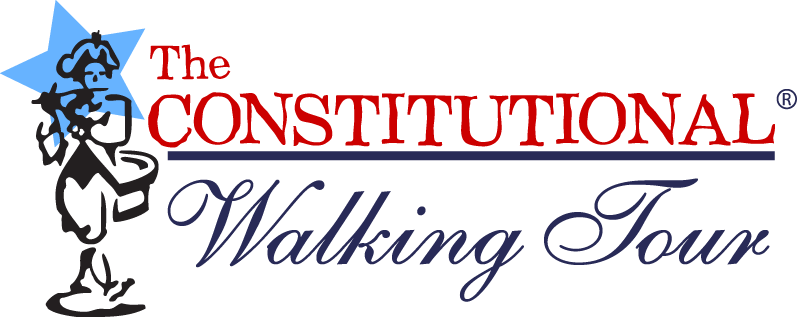Related Posts
- Buy Tickets for The Constitutional Walking Tour of Philadelphia – See 20+ Sites on a Primary Overview of Independence Park, including the Liberty Bell and Independence Hall
- New Hall Military Museum
- Museum of the American Revolution
Birth: July 26, 1727
Death: April 10, 1806 (age 78)
Colony: Virginia, New York
Occupation: General, Plantation Owner, Politician
Significance: Served as Major General and Adjutant General in the Continental Army (1775-1783); served as Commander of Continental Army in the Canadian theater (1776); served as Commander of Continental Army in the Northern Theater (1777-1780); and served as Commander of Continental Army in the Southern Theater (1780)

Horatio Gates was one of the Founding Fathers of the United States. Gates was born in England to modest means and did not immigrate to the American Colonies until late in life. Gates served in the British Army for nearly 25 years, but he grew frustrated with his inability to rise through the ranks despite his successes, while other seemingly less qualified men with more money and political connections advanced beyond him. Gates retired as a Major in 1769 at the age of 42, and he set sail to Virginia where he purchased a plantation and befriended George Washington.
Despite his decades of service to the British, Gates was sympathetic to his fellow Colonists. When fighting began in the Revolutionary War, Gates offered his services to George Washington. After the Second Continental Congress established the Continental Army in June 1775 and named George Washington as the Commander in Chief, the Continental Congress named 16 additional Generals, Gates was one of the 16 Generals. At the recommendation of George Washington, Gates was named a Brigadier General and Adjutant General of the Continental Army. Gates entered the Revolutionary War as one of Washington's most respected officers.
Gates was one of only two Continental Army Generals with significant military experience as an officer since he had fought in the War of Austrian Succession and the Seven Year's War. Gates used his extensive experience to help set up the administrative aspects of the Continental Army and was soon be promoted to Major General and put in command of the Canadian Theater of the Revolutionary War. By the time Gates arrived in the North however, his army had already retreated Southward from Canada and was stationed at Fort Ticonderoga in New York.
In 1777, Gates was given command of the Northern Theater and faced off against British General Burgoyne in the Battles of Saratoga. The Battles of Saratoga were a great success for Gates and his army, and their defeat of General Burgoyne and his army and their subsequent surrender became an enormous turning point in the American Revolutionary War.
Despite his great success, many within his command were dissatisfied with Gates' leadership style. During the Battles of Saratoga, Gates' men criticized his plan as far too conservative and their frustrations eventually led to some of them going against Gates' orders.
Benedict Arnold in particular, went directly against Gates' orders, and Arnold and his men were a key reason why America won the Battles of Saratoga. Arnold sustained severe injuries to his leg in his valiant effort, but instead of being rewarded for his success, Gates reprimanded Arnold. Arnold's frustration with the situation is believed to be the key reason why Arnold grew dissatisfied and betrayed America.
Regardless of the dispute among his own men over who was most responsible for the victory at Saratoga, it was still a great victory, and it earned Gates great respect in the Continental Congress. Some members of the Continental Congress even wanted to replace George Washington as Commander in Chief with Gates. For his part, Gates was also not shy about promoting his successes and coordinated with his supporters in Congress in an attempt to try to wrestle command from Washington. But one of Gates' dissatisfied officers leaked letters that implicated Gates to Washington, which caused Gates to cease his efforts and apologize to Washington.
In 1780, Gates was placed in command of the Southern Theater, but performed disastrously in the Battle of Camden, where British General Cornwallis crushed Gates' Army. Gates had failed to even plan for an organized retreat in the event of such a failure which further contributed to the debacle. Gates was immediately relieved of his command and his conduct nearly led to being court-martialed. Although Gates would never hold another command in the Revolutionary War, he was able to avoid a court-martial, and he spent the rest of the Revolutionary War under Washington's command.
Gates retired after the Revolutionary War in 1784, and then in 1790, he decided to sell his plantation and free his slaves and moved north to New York City. Gates lived the rest of his life in New York, getting involved in politics, and he was elected to the New York Legislature in 1800 before his death in 1806.
Horatio Gates in Philadelphia
Unlike most of America's Founding Fathers, Gates never lived in the City of Philadelphia. Gates only visited Philadelphia on brief occasions during the American Revolution while the city served as the Capital of the United States.
Today in Philadelphia you can visit the New Hall Military Museum and the Museum of the American Revolution, both of which house artifacts from the American Revolutionary War and pay tribute to the soldiers such as Gates who bravely fought for American Independence. Both the New Hall Military Museum and the Museum of the American Revolution are stops on The Constitutional Walking Tour!



